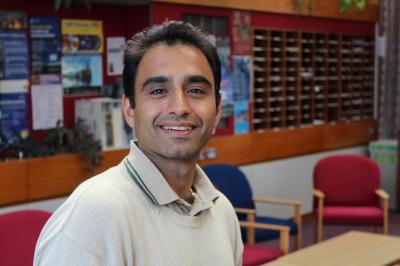Southampton astronomers launch world's largest network examining mysterious co-evolution of black holes and galaxies

Researchers across Europe will apply big data techniques to astrophysical research in a new Innovative Training Network (ITN) coordinated by the University of Southampton.
Big Data Applications for Black Hole Evolution Studies (BID4BEST) will explore a mysterious connection between black holes and their host galaxies through €3.5 million funding from the European Union.
The doctoral training network, led by Principal Investigator Dr Francesco Shankar from the School of Physics and Astronomy, is aiming to prepare a core group of young scientists for observational data from future space missions with strong European involvement.
BID4BEST ITN will launch in March 2020 and incorporate 20 international project partners across four years of research.
“Supermassive black holes exist at the centre of nearly all local galaxies and their masses seem to be correlated with those of their galactic hosts,” Francesco explains. “This link is astonishing given the widely different scales - it is like comparing a single grape to the size of the earth.
“BID4BEST will allow for a massive step toward the solving of this mystery by making use of the latest mission data, analysed with cutting-edge Bayesian and Deep-learning techniques. The massive synergy between academia and industry will allow us, via the employment of 13 first-class Marie Cure PhD fellows, to strengthen our future research impact.”
The quality and volume of incoming space data is predicted to yield transformational science on the formation of black holes in the coming years. BID4BEST will bring together leading scientists in observational and theoretical studies of black holes and galaxies, industrial experts in cutting-edge big-data technologies, and professionals in science dissemination.
“Each of our doctoral research projects will combine state-of-the-art observations, numerical simulations and innovative analytic tools to compare theory with observation and shed light on the physics of black hole formation in the context of galaxy evolution,” Francesco says.
“The training on expertise from different research areas and sectors will be achieved by carefully designed secondments, mixed doctoral supervisory committees, well-coordinated events for team communication and interaction, as well as network-wide courses on astrophysics and transferable skills.”
Academic partners in the research network include some of Europe’s most prestigious universities, with EU contributions benefiting 10 institutions across the UK, Spain, Italy, Germany, Greece and the Netherlands. Industrial partners range from the start-ups, to medium and large companies such as chemicals giant BASF.